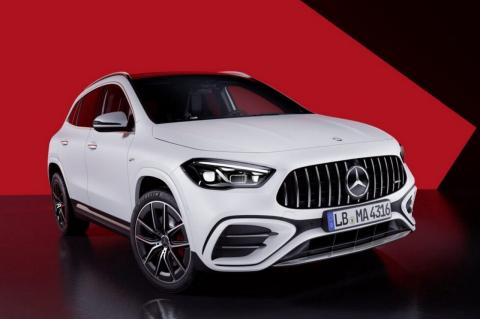Euro 7 will enter into force in 2025 for cars and vans and two years later for trucks and buses.
There are just over 24 months left for the Euro 7 standard to come into force. With emission limits much stricter than the current ones, manufacturers fear that the measure will be the last straw that will prevent the Spanish car market from recovering the figures lost in recent months.
Wayne Griffiths, president of the National Association of Manufacturers, ANFAC, assures that Euro 7 will be the end “of the majority of the cars that are manufactured today in Spain”; he also believes it poses a “real risk of closing factories and losing thousands of jobs.”
“It is important that Spain has a clear position regarding the need to completely change and review the Euro 7 proposal”, said José López-Tafall, general director of Anfac during the opening ceremony of the conference “The Mobility of Tod @s” organized by the national association of manufacturers.
Anfac’s position is similar to that defended by other players in the sector. This is the case of ACEA (European Association of Automobile Manufacturers), which qualifies Euro 7 as “marginal” compared to the current norm, Euro 6.
What does the Euro 7 standard say?
The Euro 7 standard, already approved by the European Commission (EC), will enter into force on July 1, 2025 for cars and vans and two years later for trucks and buses.
From that moment, it will invalidate the Euro 6 standard, which has been applied since 2014 and will probably be the last to take combustion engines into account since the European Union has prohibited their sale from 2035.
The three keys to the Euro 7 standard are the following:
- Unifies the emission limit for nitrogen oxides (NOx) for diesel and gasoline
- Tightens emissions reduction targets for trucks and buses
- Sets limits on particles emitted from brakes and tires. This measure will also affect electric cars that, a priori, should be the winners of Euro 7
Four reasons why Euro 7 hurts the car as we know it
1. It will raise prices
To face the new demands, manufacturers will be forced to carry out modifications not only in the vehicles they put on sale from 2025, but also in the production processes and places.
This will translate into an increase in manufacturing costs that will affect the price of the cars. So much so that an EU report predicts that compliance with the regulation will mean an increase of 304 euros on average per vehicle.
Even greater will be the increase in the price of heavy vehicles. Complying with the NOx emission limit that the European standard imposes on trucks will mean a price increase of 2,700 euros per vehicle.
2. Components will also be more expensive
And not only will the sale price of the cars go up, some components such as tires will also become more expensive.
Tire manufacturers will have to comply, for the first time, with the particle emission limits set for wheels, which will force them to develop new products. These, in all probability, will be more expensive, which will affect both the purchase of the vehicle and the maintenance work.
3. Less diesel will be sold
Vehicles that use diesel as fuel will be the most affected by the Euro 7 standard. Continuing with the previous line, diesel cars will register the highest price increase, which will cause a decrease in sales.
They will not be well received on the second-hand market either, not only because they will be more expensive when sold second-hand, but because the new Low Emission Zones (ZBE) try to remove them from circulation and drivers who need access to restricted areas are allowed to do so. They will think very long before buying them.
4. Electric cars don’t win either
Another of the manufacturers’ complaints indicates that Euro 7 will be a halt to the impulse of electric cars. The reason: the brands will not be able to afford the necessary investments to adapt the combustion engines and, at the same time, meet the electrification objectives.
Since the Euro 7 standard comes into force before the ban on registering combustion vehicles, zero emissions will be relegated to the background.













